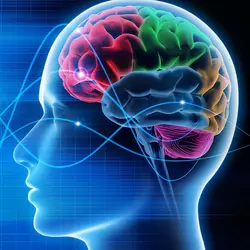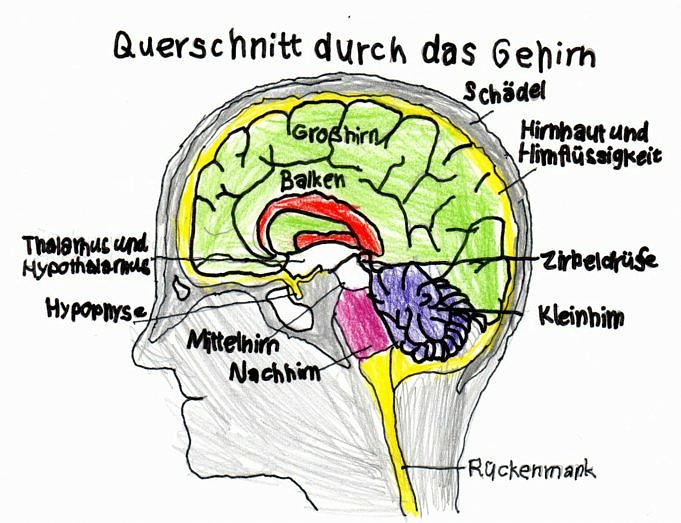After a long day, we all know what it feels like. Our muscles are tired, our legs heavy, our eyelids ready to close. Though sleep may seem as if it originates in the body, the brain controls each aspect of slumber, from the feeling of sleepiness to dreaming to waking up.
All living organisms, small and large, require sleep.Sleep is a complex process that involves light and darkness signals, specialized genes and a variety of neurotransmitters.. We do not simply drop off into sleep; our brains orchestrate this state of altered consciousness with complex precision.
Notice: Although the content of Sleepopolis is intended to be informative, it should not replace professional medical advice. If you feel you may be suffering from any sleep disorder or medical condition, please see your healthcare provider immediately.
The Circadian Rhythm Is Where Sleep Begins:
The process of sleep starts with the circadian rhythm,a system of biological clocks located in the brain and throughout the body in organs and muscle tissue. Each clock is made up of special pacemaker cells, which operate on a 24-hour cycle.
The master clock, known as the suprachiasmatic nucleus (SCN), contains approximately 20,000 nerve cells located in a section of the brain called the hypothalamus. The SCN is a built-in mechanism to regulate sleep and keep time. The genes within the pacemaker cells are designed to control sleep and waking using a combination of chemical signals, daylight and darkness cues, and other environmental indicators such as stress and meal times.
Nerve cells
Nerve cells, or neurons, act as the nervous systems unit of communication.
In addition to sleep, the circadian rhythm influences other key bodily processes, such as:
- Metabolism
- Heart rate
- Core body temperature
- Blood pressure
- Certain hormone levels
Certain cells in the optic nerves are responsible for sending light and darkness signals to the brain. This signals the circadian rhythm to activate neurotransmitters, which make us feel awake or asleep. The individual’s circadian rhythm is affected by their environment, genetic predispositions, chemical release and lifestyle choices, such as work and travel.
The Role Of Adenosine
Every cell of the body contains adenosine. It has many important functions, including expanding blood vessels and controlling heart beat. Adenosine is a byproduct of the degradation of a related molecule called ATP, which stores and transports energy within cells.
Over the course of a day as ATP releases energy, levels of adenosine build up in the parts of the brain associated with feeling alert.
This leads to the eventual switching off of neurotransmitters responsible for wakefulness and an increase in the drive to sleep.
Adenosine levels may be increased by the sleep-promoting hormone, melatonin. These hormones and neurotransmitters interact with the circadian rhythm, light-dark signals, and other factors to decrease alertness and induce sleepiness.Sleep rapidly diminishes levels of adenosine, leading to a gradual increase in alertness as morning approaches and light signals reach the brain.
FAQ
Q: Why does caffeine make us feel more awake?
A:Caffeine is absorbed into the body’s receptors for Adenosine. This blocks its sleep-promoting effects while increasing alertness.
Orexin: The Brains Sleep Switch

Orexin is a neuropeptide, a type of molecule that neurons use to communicate. Orexin, also known as hypocretin or hypothalamus, is produced by the hypothalamus and regulates appetite, arousal and wakefulness. Arousal is the state of being awake and alert, with sensory organs capable of detecting external stimuli. To determine whether an organism should be asleep or awake, the orexin system uses information from the metabolism and circadian rhythm, along with the influence of sleep debt.
Orexin promotes the state of wakefulness by activating brain chemicals with a significant influence on wakefulness, such as dopamine and histamine. Narcolepsy, which has been identified as an autoimmune disorder, may be caused by the loss of orexin molecules. The body mistakes orexin molecules for an intruder and attacks them, a destructive process that typically begins in childhood or adolescence after a viral illness.
How Sleep Impacts The Brain
Even during the deepest stages of slow-wave sleep, the brain does not shut down or go dormant. Though sections of the brain rest at various times during sleep, the brain is active during all four sleep stages.Some of the brains nighttime activities include cleaning itself, processing emotion, and consolidating memories.
Housekeeping
The third stage of sleep, N3, is when white matter cells known as glial cells expand or contract. This allows cerebrospinal fluid into the brain’s channels. This fluid removes toxic proteins and metabolic waste, such as substances that are associated with dementia like amyloid or tau.
Known as the glue of the nervous system, glial cells outnumber all other types of cells in the brain. A good night’s sleep can help lower the risk of developing neurodegenerative diseases. It gives glial cells enough time to clean out the debris they collect during the day. This debris could build up and stick together, leading to more serious brain diseases like Alzheimer’s.
Recent research shows this type of cerebral housekeeping can continue in the absence of adequate sleep, but is more likely to malfunction. In studies of sleep-deprived mice, the brains cleansing process did not stop, but swept away parts of living nerve tissue instead of toxins and other damaging debris.
Phenocytosis is the process of removing debris from the body and brain. A cell’s plasma membrane surrounds a particle to create a small pocket known as a vacuole. Phagocytosis is healthy when cells consume and destroy harmful substances such as bacteria, but when phagocytosis misfires due to sleep loss and consumes essential nerve cells, it may be described as the brain eating itself.
Although the mouse brain studies have not been replicated in humans, it is well-known that excessive accumulation of toxic proteins in the human body can cause dementia.
Phagocytosis
The engulfing of a pathogen or particle of cell debris by another cell. Phagocytosis is one of the essential functions of the immune system.
Emotion Processing
Recent research has shown that sleep is essential for the brain to process, regulate and recall emotions. Sleep deprivation can cause memory problems and increase activation in the amygdala. This is the brain area that deals with primitive emotions like fear and other defense reactions.
Studies have shown that brains react negatively to stimuli when they are deprived of sleep, increasing sadness, depression, anger, and other symptoms. Sleep appears to have a significant impact on emotional reactivity as well as the ability to control emotional responses. People who have lost sleep can experience repetitive negative thoughts, which makes it harder to change to a more positive mindset.
An MRI scan of volunteers showed that good sleep can reduce emotional reactions and the memories associated with disturbing images. Study subjects who slept between viewing sessions displayed less emotional stress on imaging, while those who did not sleep showed higher levels of activity in stress-sensitive areas of the brain.
Sleep may help in the processing of emotion due to the absence of the neurotransmitter norepinephrine in the brain duringREM sleep. REM is characterized by vivid dreams and the lowest levels of norepinephrine in the 24-hour cycle. Norepinephrine can be associated with emotional reactivity and stress. High levels could indicate a mood disorder like depression or post-traumatic stress disorder.
FAQ
??????? : What is norepinephrine?
A: Norepinephrine is a neurotransmitter that incrreases alertness, prepares the brain and body for action, and focuses attention. It can also increase anxiety and restlessness.
Memory Consolidation
Learning and memory consolidation, as well as emotional processing, are all aided by sleep. During waking hours, the firing of multiple neurons at once leads the brain to pay attention to certain people, events, or stimuli. A car that passes by wont excite neurons, while running into an old friend will. These notable waking experiences join the queue for memory consolidation during sleep.
During sleep, in an environment without competing stimuli or waking consciousness, the brain selects certain experiences and stabilizes them, locking them into memory.
Studies show that brain activity during REM sleep increases significantly after novel experiences or those that require memorization or the understanding of complex concepts. For decades, it was disputed what REM sleep did for memory consolidation and processing. One theory was that REM sleep’s sole role in memory consolidation was to create an unconscious environment that prevents nighttime experiences from being overwritten by those of wakefulness.
Sleep scientists now know that neurochemical conditions in the brain during sleep are important for the processing of memories. Part of sleeps function as a whole seems to be the consolidation of memories, as well as the selection of important aspects of experiences to store for later recall.
Last Word From Sleepopolis
The brain is the engine of sleep. Sleep is complex. It involves a complex interaction of environmental and genetic factors.
Sleep is essential to all living beings, from fruit flies to whales. Though sleep is individual, the process is universal. Sleep is good for the body and helps us process our emotions and memories.



